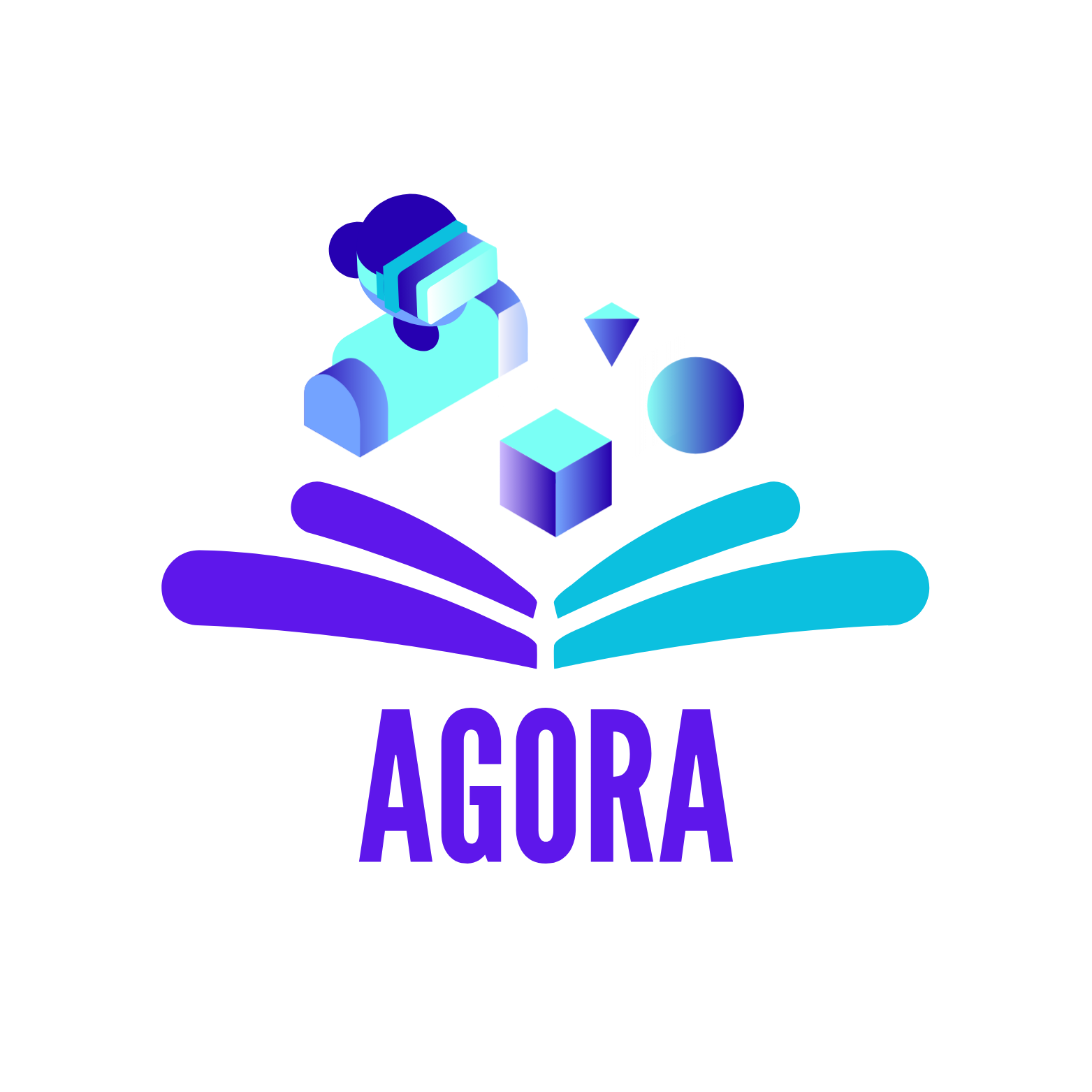The metaverse is rapidly evolving, but not only a playground for gamers or a futuristic social space.
New doctoral research reveals how it is also becoming a testing ground for law, governance, and culture. Three emerging studies provide complementary perspectives on where the metaverse is heading, and the challenges it must overcome.
Three doctoral candidates of the AGORA project, are advancing cutting-edge research that highlights the complexity and diversity of the metaverse. Antonia (Tonia) Damvakeraki focuses on the interoperability of Decentralised Autonomous Organisations (DAOs), exploring how “governance primitives” can bridge fragmented systems and enable democratic, scalable coordination. Francisco Cordoba investigates the regulatory challenges at the intersection of AI, blockchain, and virtual worlds, proposing new governance frameworks to address accountability and liability. Meanwhile, Byron Chrysovergis’ research on immersive performing arts examines how theatre, cinema, and music are being reshaped by metaverse technologies, with particular emphasis on distribution models, hybrid events, and cultural accessibility. Together, their work shows how the metaverse is simultaneously a legal, governance, and cultural frontier.
DAO Interoperability and Governance: Antonia Damvakeraki Antonia (Tonia) Damvakeraki, PhD candidate at the University of Nicosia, focuses on governance in the metaverse, particularly on the challenges of interoperability across Decentralised Autonomous Organisations (DAOs). Today, DAOs often operate in isolation, each with its own technical and governance rules. This fragmentation limits the metaverse’s promise as a fully connected ecosystem. Damvakeraki proposes “governance primitives”, flexible building blocks such as adaptable voting systems and proposal templates, that could allow DAOs to coordinate without imposing a one-size-fits-all model. Drawing from case studies like Decentraland and Aragon, as well as interviews with DAO developers and community members, her research blends theory with practice, offering insights into how democratic, scalable governance might take shape in Web3.
AI, Blockchain, and Regulation: Francisco Cordoba In their upcoming paper at iMETA2025 , Cordoba and Themistocleous explore the regulatory chaos at the intersection of AI, blockchain, and the metaverse. The research on LLM-Integrated Blockchain Agents (LIBAs) highlights fundamental conflicts: for example, how the GDPR’s “right to erasure” collides with blockchain’s immutability. The team suggests adaptive governance frameworks combining blockchain, DAOs, and ethical standards to ensure transparency and accountability. Their work also examines innovative ideas such as specialized legal entities for AI, insurance-backed liability, and even the tokenization of LIBAs to represent ownership or control. Ultimately, the research raises a critical question: how can we assign responsibility in a world where intelligence, value, and decision-making are distributed across code, communities, and markets?
Performing Arts in the Metaverse, Immersive Culture Research: Byron Chrysovergis Beyond law and governance, the metaverse is also transforming culture. Recent doctoral research on immersive performing arts, spanning VR cinema, spatial theatre, and virtual concerts, shows how the arts are becoming integral to metaverse ecosystems. While production quality is rising (often supported by public funding), distribution remains a bottleneck. Strategies now include museum-based VR screenings, platform releases modeled after app stores, and hybrid events like VR concert tours in cinemas. Audience studies reveal strong demand, with many willing to pay premium prices for immersive theatre. The research concludes that sustainable business models will rely on “portfolio approaches”: blending funding sources, hybrid distribution, niche community cultivation, and integration with existing cultural networks.
Conclusion Taken together, these projects highlight the complexity and richness of the metaverse. It is not only a technological frontier but also a legal battleground, a governance laboratory, and a cultural stage. From accountability for AI-driven blockchain agents, to interoperability in DAOs, to the future of immersive performance, the metaverse is testing how we regulate, coordinate, and create in digital spaces. The path forward requires collaboration across policymakers, developers, artists, and communities, shaping not just a virtual economy, but a new social and cultural reality.
